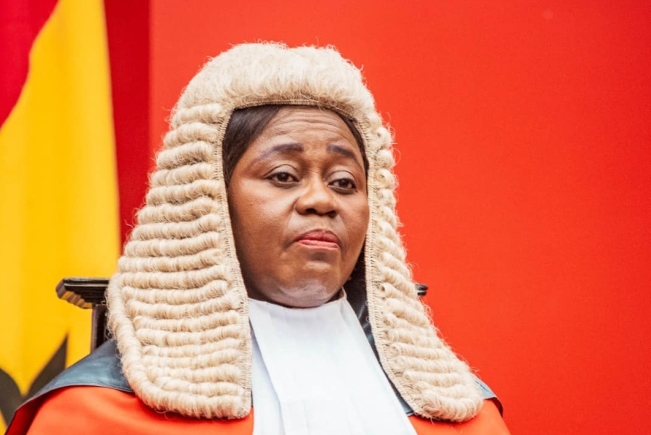As expected, the sacking of the Chief Justice, Her Ladyship Gertrude Araba Esaaba Torkornoo, following the recommendation of the five-member committee set up by the President, has engendered an enormous outpouring of comments and an upswell of emotions.
Some comments have been in favour, while others have been against, but most have concentrated on the constitutionality or otherwise of the removal of the Chief Justice.
A small but very loud body of opinion has asserted that the whole process was underpinned and influenced by political motivations.
That is fine, as partisan party politics have polarised the country so much so that people read politics into almost every executive action, but one notable comment, coming from no lesser person than the immediate past Minister of Tourism, Arts and Culture, Mr Andrew Kofi Egyapa Mercer, has sent shockwaves through the country, not least among legal practitioners.
Mr Mercer, himself a lawyer with over 20 years at the Bar, has given an indication that a future New Patriotic Party (NPP) government will sack the entire Justices at the Supreme Court as, in his opinion, the current bench of the court has become coterminous with a change of government.
While this bald threat is palpably false because it is devoid of evidence, constitutionally and objectively, I am scandalised that a prominent member of the Bar can utter such a statement. This is because any such future action on the part of any ruling government will destroy the very foundations of the administration of justice in the country.
Such unguarded statements can signal a move towards greater political control over the judiciary, which in turn would undermine democratic principles and judicial independence -t he very fundamental principle this statement ostensibly seeks to avoid.
If every new government proceeded to sack every member of the apex court on assumption of power, what would that do to the confidence of the populace in the administration of justice?
And what would such a development have in the ability of the Justices to deliver judgments without fear or favour to the ruling government?
While some of the critics, including the former Attorney General, Alfred Tua -Yeboah Esq, have critiqued the process, contending that the removal sets a bad precedent - which itself is contentious because all the processes leading to the removal were firmly grounded in the provisions of Article 146 - threatening to sack all Justices of the Supreme Court on assumption of power could never be the answer even if the process was tainted, which objectively it wasn’t as two wrongs do not make a right.
How will Judges go about their duties when at every turn they apprehend losing their jobs with every change of government?
They would be reduced to robots that are remotely controlled by the executive.
As previously stated in this column, when the Chief Justice was suspended following the setting up of the committee to probe the allegations, upon the establishment of a prima facie case, the critics were barking up the wrong tree.
It is a case of shooting the messenger instead of dealing with the message.
The problem has its provenance in the removal process as detailed in the Constitution. Some have argued,
including yours truly, that the process itself could be tightened a bit, for example, by involving Parliament in the process.
As it stands now, the President can only deal with what is/was before him - ie follow the dictates of the Constitution.
The Constitution enjoins the President, on receipt of a petition for the removal of a Chief Justice, to establish a prima facie case in consultation with the Council of State.
If a prima facie case is established, then the President may suspend this Chief Justice while the committee he has set up to probe the allegation begins its work.
While the President has discretion in the suspension decision, the decision to suspend while the investigation carries on is supported by international best practice, as, normally in employment law, management personnel are suspended when their deeds are under scrutiny for obvious reasons.
Finally, the recommendations of the committee are mandatory: the President has no choice but to implement them.
The President followed to the letter the provisions of Article 146, so cannot be faulted by any stretch of the imagination; if there is a problem, then it can be squarely situated in the provisions of Article 146 as it currently stands.
This, and other points, will be discussed next week.

